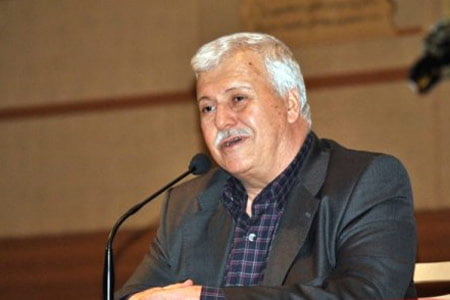Rising Value of Turkey: ‘The Gülen Movement’

Date posted: January 7, 2005
HÜSEYİN GÜLERCE
A series of articles published in Sabah daily about the Nur (Light) Community and the Gülen Movement ended yesterday. Emre Akoz made an evaluation on the final day of the series, which lasted 26 days. Mehmet Gundem’s article series begins with the announcement, “Interview to Shake the Agenda: 11 Days with Fethullah Gülen,” in Milliyet tomorrow.
Putting aside the general evaluation of this interest which gives the feeling of a new era on horizon, I want to share some passages of the series published in Sabah with the readers, but with no comment:
“Fethullah Gülen Hodja was not totally against the Western thought as Bediüzzaman. He perceived it as a source to benefit from. For instance, he respected some thinkers like Schiller, Kant and Rousseau, who dealt with the issues of morality and education. On the contrary, he was an enemy of Darwin, Marx and Comte.
“The training of ordinary Muslims was not the only purpose of the mobilization that Gülen started. As we had indicated before, he wanted to raise a “Golden Generation.” In other words, he wanted to raise a group of self-sacrificing, clean and motivated people, who understood both “science” and “religion,” with regards to social responsibility; not interested in money and mobilized with high moral values…” The name of Fethullah Gülen, who became well known with the schools and companies abroad, particularly in Central Asia, the Far East and Africa, is also being closely followed by the United States and European Union (EU). Moreover, Europeans emphasized the name Gülen without any doubt or hesitation during the Abant Platform that was held at the European Parliament building in Brussels last month.
“Gülen and his friends implemented a suitable tactic for the postmodern image era: Not only “advising” but “representing. In other words, explaining Islamic values, instead of conducting its propaganda, becoming a good, humble, responsive, religious and helpful Muslim Turk instead of conducting its propaganda.
“Here, the Turkish concept is very significant; because, those who evaluate events with information gathered through hearsay and with “horse glasses” of ideologies may try to put Fethullah Gülen into the same category with the Saudi or Iranian-type Islam. On the contrary, Gülen is against both types. One of his most repeated remarks can be summarized as follows: “The world has witnessed the Islamic understanding of Arabs and Acems (Persians) so far and did not like it. Now, they will witness an Islamic understanding of Turkish people and they will like it.”
“In my opinion, Gülen does not have a state project as he political Islamists do. As far as I understood, he favors “religious bureaucracy” and “disciplined democracy.”
“Fethullah Gülen always talks about dialogue and tolerance. In my opinion, these concepts have more meaning than their apparent meaning. For example: Dialogue means “bargaining” and tolerance means “gentlemanly competition” in the real world. (When Fener Greek Patriarch demanded the support of Gülen to open the seminary in Heybeliada during their first meeting, Gülen suggested opening an Ataturk High School in Selanik (Thessalonica) to him. This is a proof of Gülen’s realist and frightfully good bargaining character.) Furthermore, he advises introvert Muslims to compete with Christians in terms of “religion” in a global world; however, he does not demand that this should happen through struggles and fights but demands that it be done in a gentlemanly manner, in other words, with the mentality of “let the better side to win.”
“Fethullah Gülen formed a new relationship network, new legitimacy and an area of authority outside the state pyramid. Whether you like it or not, he has a right to do that in principle. Besides, his efforts are also consistent with the realities of the global world. And we should not forget that Gülen’s activities have attracted many supporters both in bureaucracy and politics.”
Source: Today's Zaman , January 07, 2005
Tags: Fethullah Gulen | Hizmet (Gulen) movement |
























